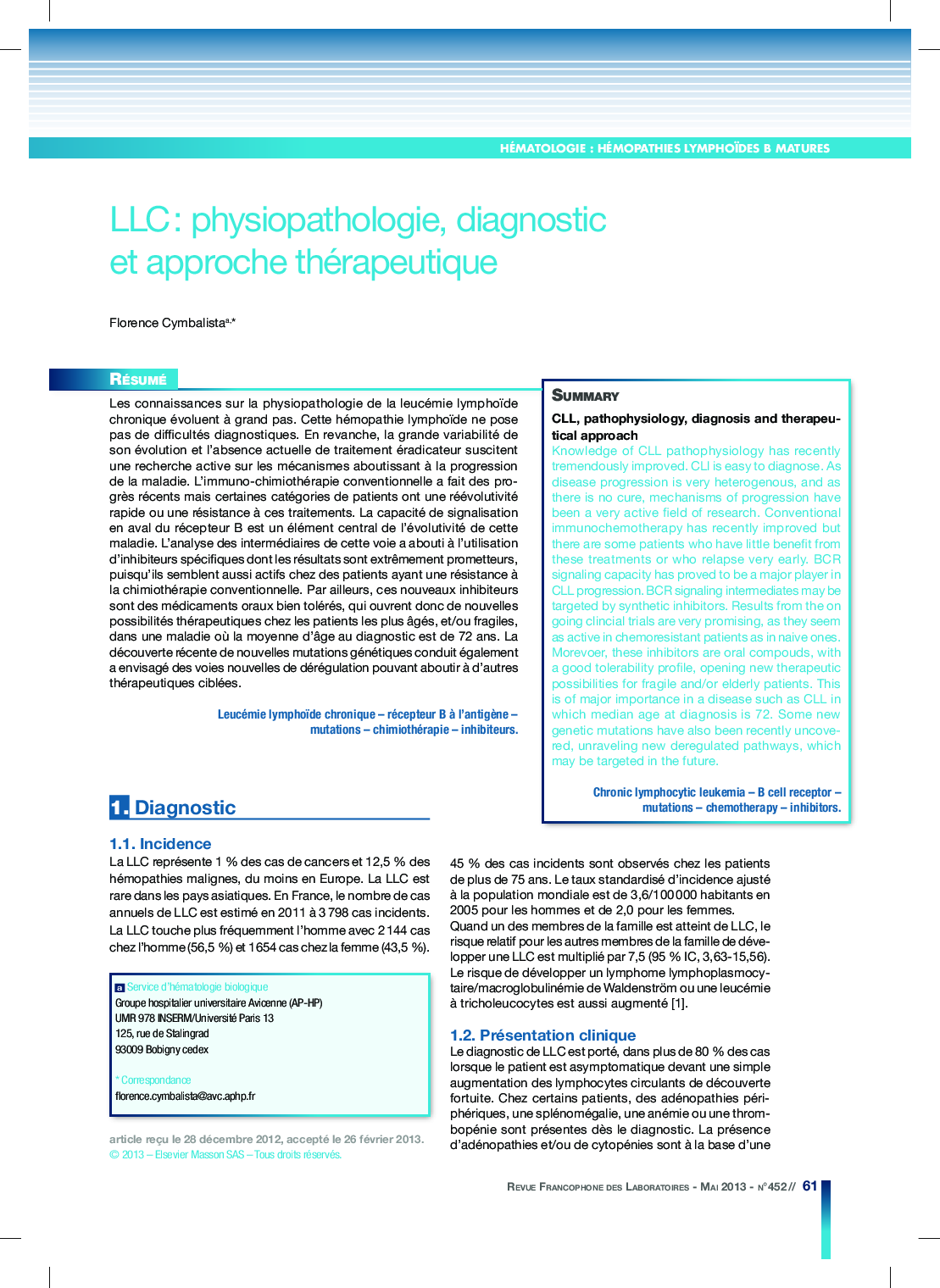| Article ID | Journal | Published Year | Pages | File Type |
|---|---|---|---|---|
| 7651933 | Revue Francophone des Laboratoires | 2013 | 11 Pages |
Abstract
Knowledge of CLL pathophysiology has recently tremendously improved. CLI is easy to diagnose. As disease progression is very heterogenous, and as there is no cure, mechanisms of progression have been a very active field of research. Conventional immunochemotherapy has recently improved but there are some patients who have little benefit from these treatments or who relapse very early. BCR signaling capacity has proved to be a major player in CLL progression. BCR signaling intermediates may be targeted by synthetic inhibitors. Results from the on going clincial triáis are very promising, as they seem as active in chemoresistant patients as in naive ones. Morevoer, these inhibitors are oral compouds, with a good tolerability profile, opening new therapeutic possibilities for fragüe and/or elderly patients. This is of major importance in a disease such as CLL in which median age at diagnosis is 72. Some new genetic mutations have also been recently uncovered, unraveling new deregulated pathways, which may be targeted in the future.
Related Topics
Physical Sciences and Engineering
Chemistry
Analytical Chemistry
Authors
Florence Cymbalist,
